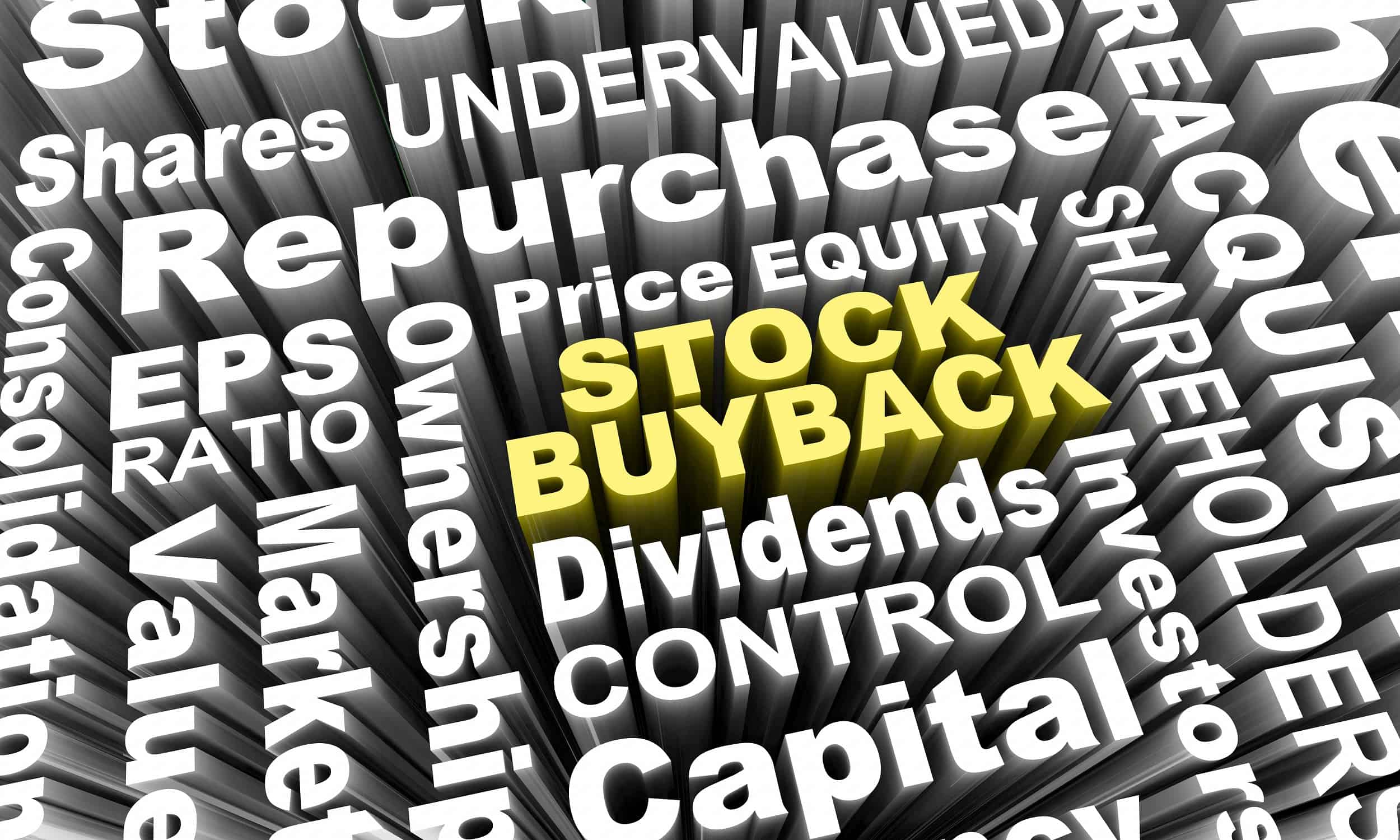Stock buybacks, also known as share repurchases, have been a hot topic in recent years, as more and more companies are choosing to use this financial strategy as a way to deploy capital.
A stock buyback occurs when a company buys back its shares from the open market, reducing the number of outstanding shares. By doing so, the company is effectively removing some of the supply of its stock, which can drive up demand and increase the stock price.
In addition, reducing the number of outstanding shares can also increase the earnings per share (EPS), as the company’s earnings are now spread out over a smaller number of shares.
Billion Dollar Buybacks
According to data from S&P Capital IQ, public companies bought back $675.9 billion of their stock in 2022. A big percentage comes from 15 companies that made up 50% of the dollar value of stock buybacks in 2022, including the top five – Apple Inc. (NASDAQ: AAPL), Alphabet Inc. (NASDAQ: GOOGL), Meta Platforms, Inc. (NASDAQ: META), Microsoft Corporation (NASDAQ :MSFT), and Shell plc (LSE: SHEL).
In January, Chevron Corporation (NYSE: CVX) announced a $75 billion share buyback, which could reduce the number of shares outstanding by as much as 20% and Exxon Mobil Corporation (NYSE: XOM) announced it and authorized another $35 billion stock buyback plan over the next two years.
White House’s Reactions
After these buyback announcements, President Joe Biden criticized the oil companies for not helping to restrain the price of gasoline by investing in oil production and refining. Last summer, he signed into law a new 1% tax on share repurchases that politicians thought might help to reduce buybacks and divert money back to investment into capital goods, research, and employees. In the State of the Union address last night, President Biden called for a quadrupling of the tax to 4% on corporate stock buybacks.
Buyback Benefits and Drawbacks
Buybacks can also be a way for companies to return excess cash to shareholders, as they can provide an alternative to dividends. Instead of paying out cash to shareholders, the company can use the cash to buy back its stock, which can then be sold by the shareholders for a profit.
Buybacks are a more tax-efficient way to return capital to shareholders than dividends because the investor does not incur any tax on the buyback sale process if they do not sell their shares. Tax is only applicable on the actual sale of shares and dividends also are taxable.
While buybacks can have some benefits, they can also be a source of controversy. Some critics argue that buybacks prioritize short-term gains for investors over long-term investments in the company. By using cash to buy back stock, companies are effectively taking money away from potential investments in research and development, capital expenditures, or employee salaries and benefits.
Furthermore, some have argued that buybacks can lead to income inequality, as the majority of stock ownership is concentrated among a small group of wealthy individuals and investment funds. As such, buybacks can serve to further enrich these groups at the expense of ordinary workers.
Despite these criticisms, many companies continue to use buybacks as a financial strategy. One of the main reasons is that they can be an effective way to boost stock prices in the short term, which can have a positive impact on the company’s financial performance. Additionally, buybacks can also be a way for companies to signal to the market that they have confidence in their stock, as they are essentially saying that they believe the stock is undervalued and that they are willing to buy it back at current prices.
10 Stocks with the Largest Buybacks in the Last Quarter
For our list of 10 Stocks, we used data from S&P Capital IQ for the company’s latest quarter, primarily Q4/2022 financial information.
| Company Name | Stock Repurchase in Latest Quarter (US$ B) | Year-over-Year Stock Price Gain |
| Apple Inc. (NASDAQ:AAPL) | 21.79 | -9.9% |
| Alphabet Inc. (NASDAQ:GOOGL) | 15.41 | -22.7% |
| Meta Platforms, Inc. (NASDAQ:META) | 7.52 | -14.8% |
| Microsoft Corporation (NASDAQ:MSFT) | 5.46 | -11.1% |
| Shell plc (LSE:SHEL) | 5.02 | 19.1% |
| Exxon Mobil Corporation (NYSE:XOM) | 4.68 | 39.5% |
| Lockheed Martin Corporation (NYSE:LMT) | 4.21 | 19.4% |
| Lowe’s Companies, Inc. (NYSE:LOW) | 4.00 | -5.4% |
| Chevron Corporation (NYSE:CVX) | 3.80 | 25.7% |
| NVIDIA Corporation (NASDAQ:NVDA) | 3.78 | -10.3% |
Final Thoughts
As an investor, it is important to understand the potential benefits and drawbacks of stock buybacks, as well as the larger implications for the company and the wider economy. When considering whether to invest in a company that is using buybacks, it is important to look at the underlying financial health of the company and to assess whether the buybacks are being used as a way to mask underlying problems, such as weak earnings or a lack of investment in the future of the business.




Leave a Reply